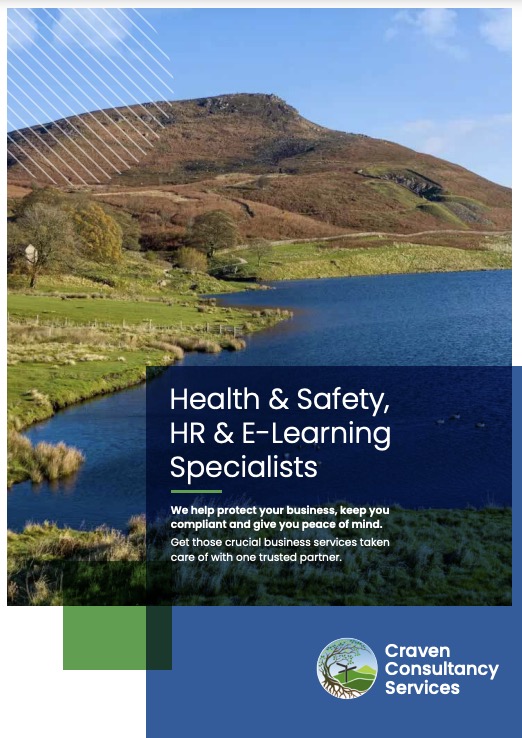Here’s our right to work checklist of the steps to take to comply with evolving government guidelines.
Due to the pandemic, the government introduced a temporary concession to right to work checks, allowing employers to carry out checks via video call and accept scanned or photographed documents. This concession ended on the 30 September 2022, but given that many people are being hired to work remotely, employers are concerned about how checks should be carried out after this date.
Employers have a responsibility to ensure that anyone taking employment with them has the right to work in the UK. This is proved by ensuring the correct checks are carried out on or before the first day of employment and records kept in accordance with government guidance.
What’s changing?
From 1 October 2022, employers will have to carry out right to work checks via either:
- A manual document check;
- A right to work check using Identity Document Validation Technology (IDVT) via the services of an Identity Service Provider (IDSP); or
- A Home Office online right to work check.
Where a manual right to work check is required for British and Irish citizens, employers can use the services of an Identity Service Provider (IDSP) to carry out the check for them.
What are IDSPs?
IDSPs are Identity Service Providers who use Identification Document Validation Technology (IDVT) to carry out digital identity checks on individuals who hold British or Irish passports.
IDSPs can therefore provide the employer with the result of the right to work check which would replace the need for the employer to see the original documents.
Employers remain liable for any civil penalty resulting from someone working without the necessary permission. Employers must therefore ensure they are satisfied the IDSP is carrying out their checks in accordance with the necessary government guidance.
How should employers carry out right to work checks for other employees?
Where a prospective employee does not hold a British or Irish passport, employers must either:
- Continue to check original documents as set out in List A and B of the UK Guidance: Employers’ right to work checklist; or
- Carry out an online right to work check, either by using an employee’s share code or the Employers’ Checking Service.
How do online right to work checks work?
Where an employee holds a visa, status under the EU Settlement Scheme, or other immigration documentation, they may be able to obtain a share code which can be used to carry out an online right to work check.
Employers then use the share code to carry out an online check.
The Employers’ Checking Service is a separate online check and carried out on individuals who cannot show their documents or online status. If the employee does have the right to work, this check will provide employers with a Positive Verification Notice for a period of six months as proof of right to work. After that period, it is expected the employee would be able to show their status in another way or the employer could carry out the check again.
What are the risks?
Employing workers who do not have the right to work in the UK can lead to an employer committing a number of different offences.
An employer will commit a civil offence if they employ a person aged 16 years or over who does not have the right to work in the UK in the role they are employed to carry out.
In addition, it is a criminal offence to employ someone:
- In the knowledge that they do not have the right to work in the UK; or
- Who you have reasonable cause to believe does not have the right to work in the UK.
The requirement to check the right to work applies to employers who employ staff under a contract of employment, service or apprenticeship, whether expressed or implied and whether oral or in writing. The Home Office also suggests that its right to work guidance should be followed when using workers who have a genuine self-employment status.
The criminal offence is currently punishable by way of imprisonment for up to five years and an unlimited fine.
The maximum civil penalty for employing illegal workers currently stands at £20,000 per illegal worker.
From 1 October 2022, the rules for checking someone’s right to work in the UK are changing. Adjusted right to work checks that enabled hiring managers to check documents remotely over video during the pandemic will be replaced by Identity Document Validation Technology (IDVT). Manual identity checks will still be permitted for applicants from the UK and Ireland, but checking an applicant’s right to work remotely must be done through a Identity Service Provider (IDSP).
Know the type of excuse you have
Step 1: Obtain
When carrying out a manual right to work check, you must obtain original documents from either List A or B of acceptable documents.
Step 2: Check
You must check that the documents are genuine and that the person presenting them is the prospective or existing employee, the rightful holder and allowed to do the type of work you are offering.
Step 3: Copy
You must make a clear copy of each document in a format which cannot manually be altered and retain the copy securely: electronically or in hardcopy. You must also retain a secure record of the date on which you made the check. Simply writing a date on the copy document does not, in itself, confirm that this is the actual date when the check was undertaken. If you write a date on the copy document, you must also record that this is the date on which you conducted the check.
If you have correctly carried out the above 3 steps you will have a statutory excuse against liability for a civil penalty if the prospective or existing employee is found working for you illegally. However, you need to be aware of the type of excuse you have as this determines how long it lasts for, and if, and when you are required to do a follow- up check.
If the documents that you have checked and copied are from:
- List A: You will establish a continuous statutory excuse for the duration of that person’s employment with you if you have conducted the right to work checks correctly before employment begins. You do not have to conduct any further checks on this individual.
- List B group 1: You will establish a time-limited statutory excuse which expires when check the person’s permission to be in the UK expires. You should carry out a follow-up when the document evidencing their permission to work expires.
- List B group 2: You have a time-limited statutory excuse which expires six months from the date specified in your Positive Verification Notice. This means that you should carry out a follow-up check when this notice expires.
You must obtain original documents from either List A or List B of acceptable documents for a manual right to work check.
Manual RTW Checks
Check the candidate has the correct documentation
If you’re conducting a manual right to work check, the Home Office requires you to obtain original documents from one of two lists of acceptable evidence: the first is the candidate’s passport, immigration status document, birth or adoption certificate or certificate of naturalisation in the UK; the second refers to documents showing the applicant’s application for leave to remain under immigration rules. The full lists are available on gov.uk.
Verify and make copies of documents
Employers need to check that documents are genuine and that the prospective employee is the person presenting them. You need to check that photographs are consistent across documents and match the person’s appearance, that the documents have not been tampered with, that any difference in names across documents can be explained (for example marriage or divorce), and whether expiry dates for permission to be in the UK have passed. You then need to make copies of those documents in a format that cannot be manually altered. Dates of when copies were made must be retained securely elsewhere.
Digital RTW Checks
From 1 October 2022, employers wishing to carry out right to work checks remotely should do so through an IDSP. The government continues to update a list of providers that satisfy “a medium level of confidence” in their use of IDVT. It is not mandatory to use one of these certified IDSPs, but doing so will provide assurance that the check meets relevant scheme guidance and standards. After that the steps are similar to those for a manual check:
Check that the IDVT documents are from the individual
You must ensure that the digital photographs supplied by the candidate are in fact the individual applying for the role, and that their biographical details such as date of birth match.
Retain a record of the right to work check
As with manual right to work checks, you need to retain a clear copy of the output from the IDVT check for the duration of someone’s employment, and for two years after their employment has come to an end.
Online RTW Checks
If an applicant is from outside the UK, they may have an immigrations status that can be checked online, such as an eVisa, biometric residence card (BRC), biometric residence permit (BRP), or Frontier Work Permit (FWP). You can carry out an online right to work check by using the government’s online service.
Get a share code
To carry out an online right to work check, the employer will need the applicant’s date of birth and a right to work share code, which they can obtain from the government website by inputting their immigration details.
What are the risks?
Employing workers who do not have the right to work in the UK can lead to an employer committing a number of different offences.
An employer will commit a civil offence if they employ a person aged 16 years or over who does not have the right to work in the UK in the role they are employed to carry out.
In addition, it is a criminal offence to employ someone:
- In the knowledge that they do not have the right to work in the UK; or
- Who you have reasonable cause to believe does not have the right to work in the UK.
The requirement to check the right to work applies to employers who employ staff under a contract of employment, service or apprenticeship, whether expressed or implied and whether oral or in writing. The Home Office also suggests that its right to work guidance should be followed when using workers who have a genuine self-employment status.
The criminal offence is currently punishable by way of imprisonment for up to five years and an unlimited fine.
The maximum civil penalty for employing illegal workers currently stands at £20,000 per illegal worker.
Download your FREE Guide for Employers here;
Guide_to_Right_To_Work_RTW_in_the_UK_updated_October_22.pdf (mcusercontent.com)













